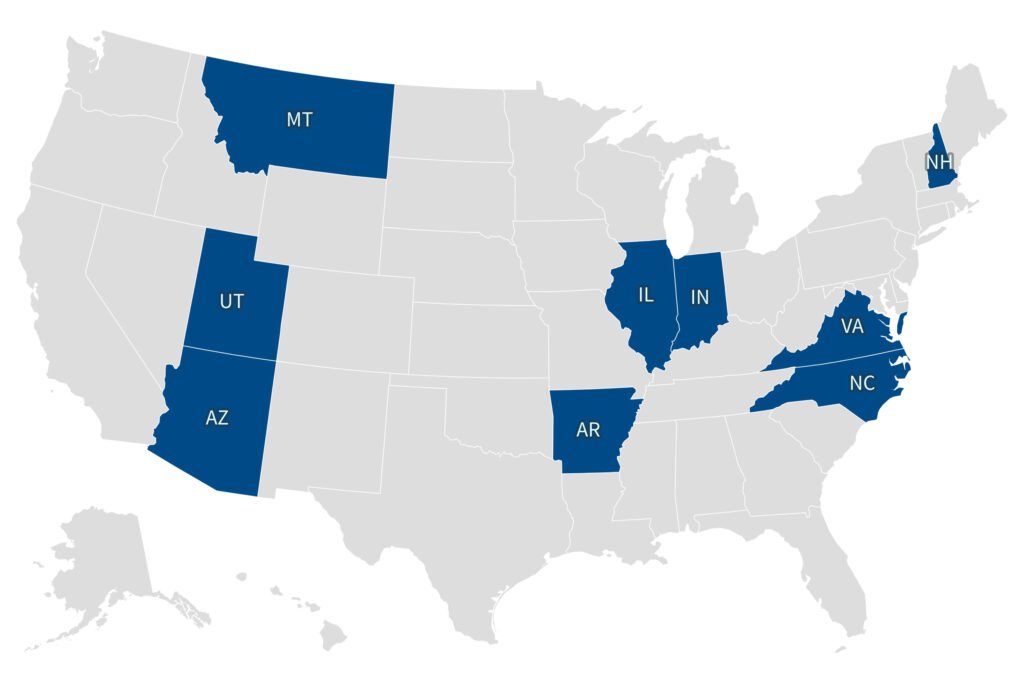Medicaid Expansion Under Threat as GOP Gains Control of Congress
Following Donald Trump’s return to the White House and the Republicans seizing full control of Congress in 2025, the Affordable Care Act’s Medicaid expansion is once again facing potential cuts.
Immediate Risk for 3 Million Adults in Nine States
According to a report by KFF and the Georgetown University Center for Children and Families, more than 3 million adults in nine states are at immediate risk of losing their health coverage if the GOP reduces federal Medicaid funding that has allowed states to expand eligibility. These states, including Arizona, Arkansas, Illinois, Indiana, Montana, New Hampshire, North Carolina, Utah, and Virginia, have trigger laws that would end their Medicaid expansions swiftly if federal funding decreases.
Impact of the Affordable Care Act
The Affordable Care Act, enacted in 2010, encouraged states to expand Medicaid programs to cover more low-income Americans without health insurance through their jobs. Currently, 40 states and the District of Columbia have extended health coverage to an estimated 21 million people since 2014, driving the U.S. uninsured rate to record lows.
In exchange for expanding Medicaid, the federal government covers 90% of the costs for the expanded population, which is significantly higher than the average federal match for other Medicaid beneficiaries nationwide.
Political Divide on Medicaid Expansion
Conservative policy groups argue that the ACA’s Medicaid expansion is costly and covers too many people, while Democrats maintain that it has saved lives and benefited communities by providing coverage to individuals who could not afford private insurance.
If Congress reduces federal funding, all states with Medicaid expansion, even those without trigger laws, would be at risk of losing coverage as state legislatures would need to make up the funding shortfall.
State Triggers and Potential Loss of Coverage
States like Michigan, which had a funding trigger for its Medicaid expansion in 2013, eliminated the trigger last year when Democrats were in control. However, states such as Arizona, Arkansas, Indiana, Montana, North Carolina, and Utah, which have trigger laws and went for Trump in the 2024 election, could swiftly end their expansions if federal funding falls below certain thresholds.
Between 3.1 million and 3.7 million people in states with trigger laws could lose coverage if federal funding decreases, with additional states like Iowa, Idaho, and New Mexico facing financial impacts but not automatic termination of expansions.
Future of Medicaid Expansion
With discussions on potential cuts to Medicaid expansion funding ongoing, the future of coverage for millions of low-income Americans hangs in the balance. State decisions to maintain or roll back expansions will depend on political dynamics and budget constraints.
As Medicaid remains a critical safety net for millions of Americans, any reduction in federal funding could lead to an increase in the number of uninsured individuals, limiting access to essential healthcare services.
Uncertain Outlook
As the Trump administration and congressional Republicans consider the fate of Medicaid expansion, potential proposals could include phasing out federal funding or changing eligibility criteria. The impact of these decisions could have far-reaching consequences on the healthcare landscape in both red and blue states.
Ultimately, the future of Medicaid expansion hinges on political decisions at both the federal and state levels, with millions of Americans’ access to healthcare coverage hanging in the balance.


